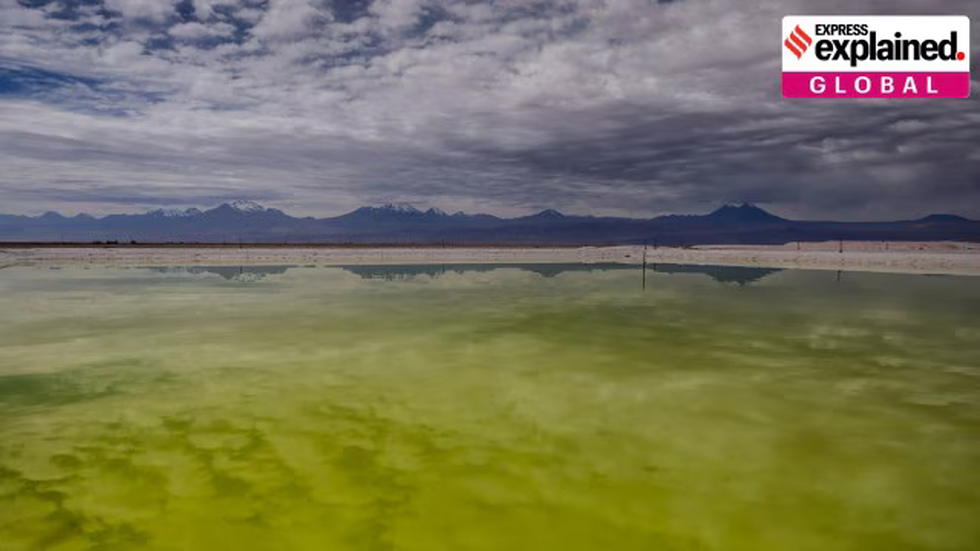- Lithium brine extraction is a process where salt-rich water is pumped to the surface and into evaporation ponds to extract lithium.
- This method is prevalent in salt flats like Chile’s Atacama, one of the world’s largest lithium sources.
- Cause of sinking: The subsidence is occurring because the rate of lithium-rich brine pumping exceeds the natural recharge rate of the aquifers, leading to a downward movement of the Earth's surface.
- Area of concern: The most affected region is in the southwest part of the salt flat, where lithium mining operations are concentrated. The sinking area measures approximately 8 km from north to south and 5 km from east to west.
What is Lithium?
- Lithium, often referred to as “white gold,” is a highly sought-after metal crucial for the production of rechargeable batteries used in laptops, mobile phones, and electric vehicles, an essential component in global efforts to combat climate change.
Environmental impact of Lithium Mining
- Water scarcity: The extraction process is water-intensive; it requires approximately 2,000 tons of water to produce just one ton of lithium.
- This is particularly problematic in the Atacama Desert, where water is already scarce, affecting indigenous communities and local wildlife.
- Chemical contamination: Chemicals like sulfuric acid and sodium hydroxide used in Lithium extraction contaminate the soil and water, posing a severe threat to ecosystems and endangering species.
- Impact on Wildlife: A 2022 study highlighted that lithium mining has led to a decline in the flamingo population in the Atacama region due to reduced water levels, affecting their reproduction.
